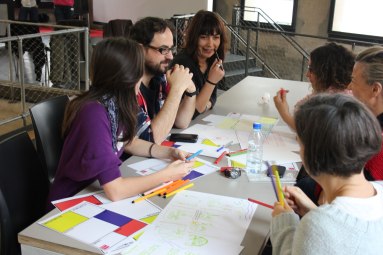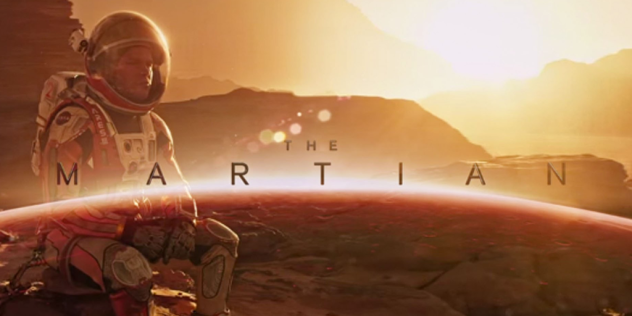If you have watched the recent blockbuster ‘The Martian’ by Ridley Scott you will know what I mean when I say that interdisciplinary education is crucial. In the movie, the NASA astronaut Mark Watney (Matt Damon) struggles to survive on Mars after having been unintentionally left behind by his crew. Mark has to figure out how to survive for the next years by growing his own food, producing water and protecting himself against the arid conditions on Mars until he can be rescued. I want to reflect on why an interdisciplinary education is important and how/why we should reform our school curriculum to emphasise the interconnectedness of disciplines instead of their distinctness.
In today’s world, the sciences are usually separated into biology, chemistry and physics. This division is a very reasonable one, given the vastness of our cumulative human knowledge, which has become unknowable for any human being over the last few hundred years. A student who wants to become a scientist doing cutting edge research will eventually have to narrow her focus, but that’s what university is for. In school, we want to teach students basic scientific literacy:
“Scientific literacy means that a person can ask, find, or determine answers to questions derived from curiosity about everyday experiences. It means that a person has the ability to describe, explain, and predict natural phenomena. Scientific literacy entails being able to read with understanding articles about science in the popular press and to engage in social conversation about the validity of the conclusions…” (Source)
I see scientific literacy as a set of basic rules about how the world works, a student can apply to a novel situation in order to derive insights, make predictions and better decisions. The ‘Martian’, although he had never grown potatoes before, now had to do so in an alien environment. His understanding of these basic rules (e.g. manure contains valuable nutrients, plants need earth-like atmospheric pressure, water can be extracted from the air) allowed him to plan his survival. Most of these basic rules are not confined to a single discipline, but span across.
 Imagine teaching students about ‘balance’. In biology, you could talk about how prey and predators form a stable environment, how the extinction of a predator would lead to an overpopulation of prey animals and how that would throw the ecosystem off balance. You could also talk about homeostasis and how organisms keep their internal environment within certain parameters. In chemistry, students can learn about balancing chemical reactions and in physics about the balance of forces that keep the electrons in their orbits as well as earth around the sun. Many school already have such methods in place, but the concept of ‘balance’ could be extended to non-scientific fields as well – political balance between nuclear powers during the cold war, balance within a human relationship.
Imagine teaching students about ‘balance’. In biology, you could talk about how prey and predators form a stable environment, how the extinction of a predator would lead to an overpopulation of prey animals and how that would throw the ecosystem off balance. You could also talk about homeostasis and how organisms keep their internal environment within certain parameters. In chemistry, students can learn about balancing chemical reactions and in physics about the balance of forces that keep the electrons in their orbits as well as earth around the sun. Many school already have such methods in place, but the concept of ‘balance’ could be extended to non-scientific fields as well – political balance between nuclear powers during the cold war, balance within a human relationship.
Restructuring the school curriculum to highlight basic rules is not necessarily more work for students, but initially more work for teachers. Instead of following the chapters in a book, teachers from the different sciences have to come together and discuss how they could coordinate their lessons around these concepts. Maybe even have a project week in which every school subject participates! Students would be able to see how the concept spans across the disciplines and get a deeper appreciation for the world they live in.
Summary
So, what’s the point I’m trying to make. Firstly, scientific literacy is hugely important for making better decisions in life. It involves tackling topics in an interdisciplinary way in order to extract generalised concepts. The student can gain a deeper understanding about how the world works and apply their knowledge to novel situations. Secondly, I want to stress the importance of building a deeper appreciation for what the sciences are. It’s not the working hours or the pay check that gets students motivated to become scientists, but the awe and wonder that science has to give.

